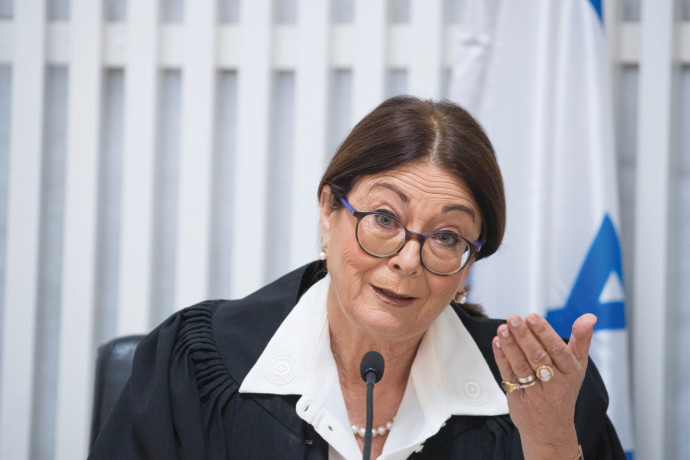Six years after his arrest, the trial court set June 16 as the date for its verdict in the case of World Vision defendant Mohammad el-Halabi, under pressure from the High Court of Justice to stop dragging its feet.
In a hearing on Monday about whether to extend Halabi’s detention for another 90 days – despite previous expectations that the verdict would come out before May – the justices finally seemed to have lost patience with the Beersheba District Court, which has been trying the case.
In February, the High Court extended his detention for 90 days, indicating it had received indications from the district court that this could be a final extension before the verdict.
The decision was not published due to much of the case being under a gag order, but The Jerusalem Post has confirmed the extension.
Seeing that the lower court was still dragging its feet on issuing a verdict, however, the High Court explicitly demanded this week that the lower court notify it in writing by Thursday on exactly when the verdict will be issued.

Sources indicated there may also be complications related to the trial court judge retiring.
The state prosecution accused Halabi of assisting Hamas outside his humanitarian work, however, he claims the charges were made to delegitimize Palestinian civil society.
His case has come before the High Court dozens of times since his August 2016 indictment, but each time the justices have extended his detention pending a verdict in the trial.
The extremely delayed and time-consuming trial ended with closing arguments in July and October, and it is unclear what is delaying the verdict.
Halabi has vehemently denied the charges, accusing the prosecution and the Shin Bet (Israel Security Agency) of manufacturing them, coercing a confession in order to undermine humanitarian organizations in Gaza, and dragging the case out.
So far, only the defendant has been unloading on the prosecution, with the state refraining from responding publicly due to concerns of revealing classified intelligence.
Halabi was indicted in August 2016 for smuggling $7.2 million a year to Hamas for buying weapons and building attack tunnels – money that was supposed to be used by World Vision for food, humanitarian assistance and aid programs for disabled children.
Neither World Vision nor an Australian government audit found the wrongdoing allegedly uncovered by the Shin Bet.
Since March 2021, more allegations have come out from Halabi’s side, including that he was fooled by an undercover informant in detention into confirming details that the informant kept pressuring Halabi to confirm.
According to the defense, Halabi told law enforcement that the confession was coerced from the first moment they raised it with him, but that the original document recording the confession was lost by police.
The defense says the case should have been tossed in light of the circumstances in which the confession was obtained, and that the police record of what was said is an inauthentic photocopy, raising questions of a police cover-up.
In addition, the defense has claimed that World Vision did not even transfer any materials to Gaza at some of the crossing points where the prosecution says Halabi made illegal transfers to Hamas.
The Post has learned that although these allegations were new to the public, the prosecution has been aware of them and responded to them behind closed doors throughout the trial.
While the prosecution’s responses are classified at this stage, it appears that it would acknowledge using an undercover informant, but would say that this is a standard approved tactic and that no illegal pressure was applied.
Moreover, the prosecution would point out that the court already rejected any allegations of a coerced confession earlier in the case and that the only question left to the court is how much weight to give the confession.
In terms of the lost document allegation, it appears the prosecution would likely express regret but reject any conspiracy theories. It would point out that this is not the first case such an error occurred, and would note that the defense has not flagged any specific issues to invalidate the authenticity of the copy of the confession.
Regarding the border crossing issue, the prosecution would respond that Halabi was a clever operator and sometimes used different organizations or names to move materials while using World Vision as his main laundering tool.
Both sides accuse the other of unconscionable delays relating to fighting over how the trial would take place, what evidence the defense would get to see, and the possibility in the earlier years of reaching a plea deal.







